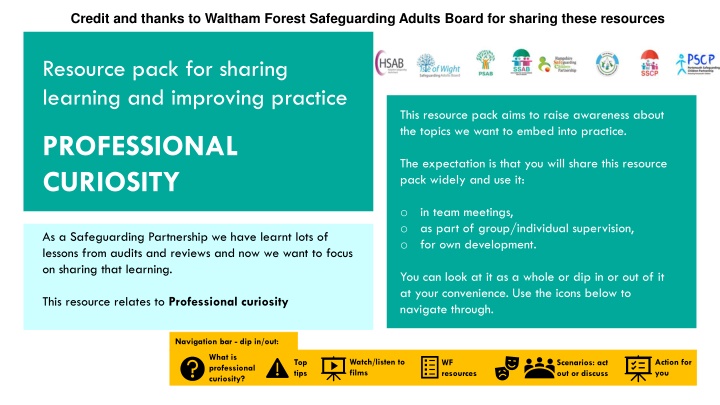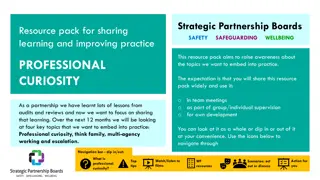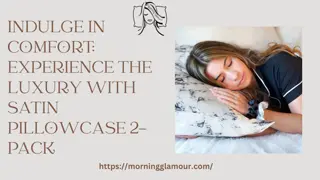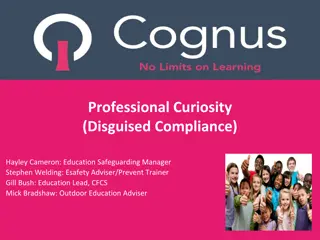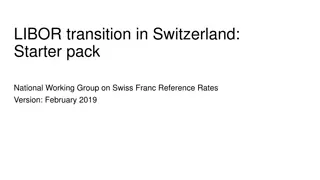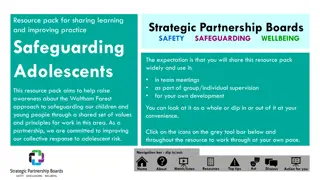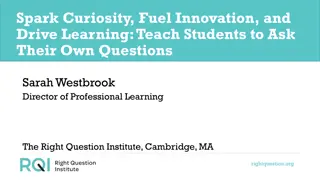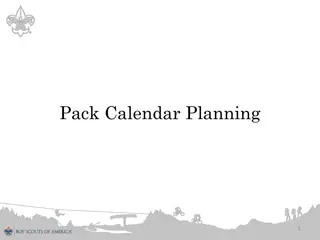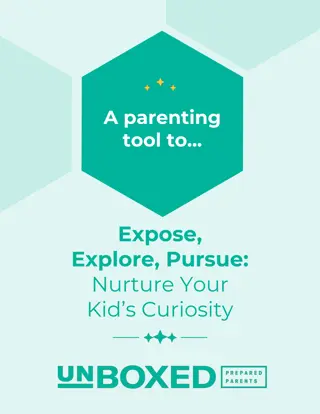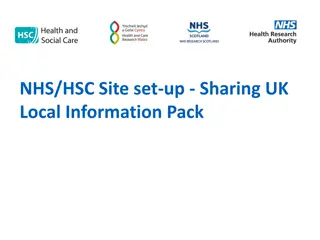Professional Curiosity Resource Pack for Practice Improvement
Explore the Professional Curiosity Resource Pack by Waltham Forest Safeguarding Adults Board to enhance your understanding of professional curiosity in practice. Discover the importance, benefits, and potential risks associated with professional curiosity through valuable tips and scenarios provided in the pack.
Download Presentation

Please find below an Image/Link to download the presentation.
The content on the website is provided AS IS for your information and personal use only. It may not be sold, licensed, or shared on other websites without obtaining consent from the author.If you encounter any issues during the download, it is possible that the publisher has removed the file from their server.
You are allowed to download the files provided on this website for personal or commercial use, subject to the condition that they are used lawfully. All files are the property of their respective owners.
The content on the website is provided AS IS for your information and personal use only. It may not be sold, licensed, or shared on other websites without obtaining consent from the author.
E N D
Presentation Transcript
Credit and thanks to Waltham Forest Safeguarding Adults Board for sharing these resources Resource pack for sharing learning and improving practice PROFESSIONAL CURIOSITY This resource pack aims to raise awareness about the topics we want to embed into practice. The expectation is that you will share this resource pack widely and use it: o in team meetings, o as part of group/individual supervision, o for own development. As a Safeguarding Partnership we have learnt lots of lessons from audits and reviews and now we want to focus on sharing that learning. You can look at it as a whole or dip in or out of it at your convenience. Use the icons below to navigate through. This resource relates to Professional curiosity Navigation bar - dip in/out: What is professional curiosity? Watch/listen to films Action for you Top tips WF resources Scenarios: act out or discuss
WHAT isprofessional curiosity? Professional curiosity is a combination of looking, listening, asking direct questions, checking out and reflecting on information received. It means: Why is it important? testing out your professional hypothesis and not making assumptions, gathering all the information from different sources to gain a better understanding of individuals and family functioning, getting an understanding of individuals and families past history which in turn, may help you think about what may happen in the future, obtaining multiple sources of information and not accepting a single set of details you are given at face value, having an awareness of your own personal bias and how that affects how you see those you are working with, being respectively curious. A lack of professional curiosity can lead to: missed opportunities to identify less obvious indicators of vulnerability or significant harm, assumptions made in assessments of needs and risk which are incorrect and lead to wrong intervention for individuals and families. Navigation bar - dip in/out: Watch/listen to films Action for you Top tips WF resources Scenarios: act out or discuss Home
TOP TIPS LISTEN ASK CHECK OUT LOOK Navigation bar: TOP TIPS - Remember to Home Next slide
TOP TIPS LOOK Is there anything about what you see when you meet with this child/adult/family which prompts questions or makes you feel uneasy? Are you observing any behaviour which is indicative of abuse or neglect? Does what you see support or contradict what you re being told? Navigation bar: Top tips - REMEMBER TO Top tips Home Next slide
TOP TIPS LISTEN Are you being told anything which needs further clarification? Are you concerned about what you hear family members say to each other? Is someone in this family trying to tell you something but is finding it difficult to express themselves? If so, how can you help them to do so? Navigation bar: Top tips - REMEMBER TO Top tips Home Next slide
TOP TIPS ASK Are there direct questions you could ask when you meet this child/adult/family which will provide more information about the vulnerability of individual family members? Here are some examples: - How do you spend a typical day? - Who do you live with? - When were you last happy? - What do you look forward to? - How did you get that injury? - Who is this with you? - When do you feel safe? - Why are you not at school? Navigation bar: Top tips - REMEMBER TO Top tips Home Next slide
TOP TIPS CHECK OUT Are other professionals involved? Check with adult and children s services, ask the family. Have other professionals seen the same as you? Are professionals being told the same or different things? Are others concerned? If so, what action has been taken so far and is there anything else which should or could be done by you or anyone else? Navigation bar: Top tips - REMEMBER TO Top tips Home Next slide
TOP TIPS - Remember to: Question your own assumptions about how individuals/families function and watch out for over optimism. Recognise your own feelings (for example, tiredness, feeling rushed or illness) and how this might impact on your view of a child/adult/family on a given day. Think about why someone may not be telling you the whole truth. Demonstrate a willingness to have honest conversations. Address any professional anxiety about how hostile or resistant individuals/families might react to being asked direct or difficult questions. Remain open minded and expect the unexpected. Appreciate that respectful scepticism and challenge are healthy. It is good practice and ok to question what you are told. Recognise when individuals/adults repeatedly do not do what they said they would and discuss with them. Understand the cumulative impact of multiple or combined risk factors, for example, domestic abuse, drug/alcohol misuse, mental health. Ensure that your practice is reflective and that you have access to good quality supervision. Navigation bar - dip in/out: What is professional curiosity? Action for you WF resources Scenarios: act out or discuss Top tips Watch/listen to films Home
WATCH/LISTEN to this film Re-thinking did not attend Navigation bar - dip in/out: What is professional curiosity? Action for you Top tips WF resources Scenarios: act out or discuss Home
USE these 8 Area resources 4LSAB MULTI-AGENCY FRAMEWORK FOR MANAGING RISK AND SAFEGUARDING PEOPLE MOVING INTO ADULTHOOD A guide to THRESHOLDS for CHILDREN Guidance MENTAL CAPACITY Resource for CHILD NEGLECT 4LSAB MULTI AGENCY RISK MANAGEMENT 4LSAB CONCERNS GUIDANCE 4LSAB Guidance for SELF-NEGLECT Navigation bar - dip in/out: What is professional curiosity? Watch/listen to films Action for you Top tips Scenarios: act out or discuss Home
ACT OUT or DISCUSS scenarios You are about to get four scenarios Choose how you use them DiscussA Discuss B Discuss C Discuss D Discuss OR Act out Navigation bar - dip in/out: What is professional curiosity? Watch/listen to films Action for you Top tips WF resources Home
ACT OUT: instructions 2. Professional(s) 2. Named person (Alex, Bilal, Cal, Dina) 1. Divide into pairs or a group of three. You will ask questions to find out more about the named person. You have limited background information. Use your imagination and do ad lib to suitably test your colleague(s). One of you will be the named person . The other(s) will be the professional(s) . 3. In your pair/group of three: Discuss the scenario afterwards. Were the right questions asked? Swap over for the next scenario. Professional(s) - on the next slide, look away. Navigation bar: Act out A Act out B Act out C Act out D Home Next slide
ACT OUT this scenario what questions would you ask? Alex aged 46 and lives alone In Alex s mid-30s, serious health issues resulted in them becoming a wheelchair user, with limited mobility. Alex now has a range of more acute health concerns: muscular spasms, physical impairments and intermittent speech loss. Home is a ground floor one bedroom flat which is very cluttered, not wheelchair friendly and in need of major repairs. Alex likes the flat to be cosy , with a preference for living in darkness. Alex is well known to health and social care professionals. Capacity assessments concluded that they do have mental capacity. Alex often cancels medical appointments or does not turn up. The last professional that visited the home noticed that medication was stacked up unopened in the kitchen. On a recent admission to hospital following a urine infection, health professionals noticed that Alex was unkempt, underweight and dehydrated. Alex has become isolated from groups of friends and family. Alex has recently lost a lot of weight and is known to self-medicate with alcohol. Alex has started to refuse anyone entry to the home including utility services. Navigation bar: Act out B Act out C Act out D Home Next slide Act it out
ACT OUT this scenario what questions would you ask? Bilal aged 15 and lives with his mother, elderly grandparents and four younger siblings Home is a compact four bedroomed house in an area of social deprivation. Bilal shares a room with two younger brothers (twins, aged seven) but is often missing from home. This is not always reported by his mother. Although he has no criminal record, Bilal is known to the police who say that he is a nuisance. School says he is regularly absent. When he does attend, he is late and disruptive in lessons. Bilal never has his PE kit, and he goes missing at lunch times. The only time he does seem to engage is at events where lunch is provided. Teachers have noticed that Bilal often looks somewhat dishevelled. Bilal s mum says she is fed up with the shame her oldest son has brought to the family and that he is good for nothing. A local youth group have banned Bilal from their activities following an incident where he came into the youth club seemingly drunk, disrupted the activities and was suspected to have stolen a coat on his way out. Bilal appears to have a constant cold and a deep, hacking cough but his GP has not seen him since he was 11 years old. Navigation bar: Act out A Act out C Act out D Home Next slide Act it out
ACT OUT this scenario what questions would you ask? Cox family Mum (Cal) aged 38, Dad (Chris) aged 36, Ella aged six and Oli aged two Home is a spacious two bedroomed flat that is always immaculate. Mum has physical and mental health needs. Dad is her main carer and works full time. Health visitor reports that on the last two visits, she saw Oli and Ella with Dad who explained that Mum was in bed unwell. Healthwise, all seemed well with both children although Ella seemed a little on edge on both occasions. Ella has mentioned to her teachers that Mum and Dad sometimes argue at home, and she worries about this. There have been multiple occasions when Ella and Oli have not been brought to health appointments. Mum has missed many of her health appointments, some of which have been cancelled by Dad. Mum puts herself down quite a lot. Since losing her mother whom she was very close to about five years ago, she says that she has lost contact with family and friends and often feels isolated. Mum has mentioned that Dad likes things at home to be neat and orderly. She states that he earns the money for the family and creatively manages the budgets, for example, by keeping food locked away - she says she likes to snack and often gets carried away. She says that she is very lucky to have him and that he sometimes reminds her that she would probably not cope without him around. Navigation bar: Act out A Act out B Act out D Home Next slide Act it out
ACT OUT this scenario what questions would you ask? Dina aged four and lives at home with Mum, Uncle and two older brothers aged 10 and 15. Home is a three-bedroom flat. Dina sleeps in Mum s room, her brothers share and Uncle sleeps in the box room. This was previously Dina s room. Dina s father left the family home about a year ago and was physically abusive to Mum and Dina s brothers. Dina often witnessed this. Dina was very close to her dad and has expressed that she misses him. Mum works long hours to financially support the family. Mum has a good support network and her brother (Uncle) moved in about six months ago. He needed somewhere to live after his relationship broke down and he was able to help Mum with childcare while Mum is working. Dina s two brother were previously helping with this. School recently noticed bruising around Dina s thigh when she was changing for PE. When questioned about it she went very quiet and tried to cover it up. During play time recently, Dina was found touching another girl s genital area and staff overheard her making sexual references. Navigation bar - dip in/out: What is professional curiosity? Act out A Act out B Act out C Action for you Top tips Watch/listen to films WF resources Home Act it out
DISCUSS this scenario what questions would you ask? Alex aged 46 and lives alone In Alex s mid-30s, serious health issues resulted in them becoming a wheelchair user, with limited mobility. Alex now has a range of more acute health concerns: muscular spasms, physical impairments and intermittent speech loss. Home is a ground floor one-bedroom flat which is very cluttered, not wheelchair friendly and in need of major repairs. Alex likes the flat to be cosy , with a preference for living in darkness. Alex is well known to health and social care professionals. Capacity assessments concluded that they do have mental capacity. Alex often cancels medical appointments or does not turn up. The last professional that visited the home noticed that medication was stacked up unopened in the kitchen. On a recent admission to hospital following a urine infection, health professionals noticed that Alex was unkempt, underweight and dehydrated. Alex has become isolated from groups of friends and family. Alex has recently lost a lot of weight and is known to self-medicates with alcohol. Alex has started to refuse anyone entry to the home including utility services. Navigation bar: Discuss B Discuss C Discuss D Home Next slide
DISCUSS this scenario what questions would you ask? Bilal aged 15 and lives with his mother, elderly grandparents and four younger siblings Home is a compact four-bedroomed house in an area of social deprivation. Bilal shares a room with two younger brothers (twins, aged seven) but is often missing from home. This is not always reported by his mother. Although he has no criminal record, Bilal is known to the police who say that he is a nuisance. School says he is regularly absent. When he does attend, he is late and disruptive in lessons. Bilal never has his PE kit, and he goes missing at lunch times. The only time he does seem to engage is at events where lunch is provided. Teachers have noticed that Bilal often looks somewhat dishevelled. Bilal s mum says she is fed up with the shame her oldest son has brought to the family and that he is good for nothing. A local youth group have banned Bilal from their activities following an incident where he came into the youth club seemingly drunk, disrupted the activities and was suspected to have stolen a coat on his way out. Bilal appears to have a constant cold and a deep, hacking cough but his GP has not seen him since he was 11 years old. Navigation bar: Discuss A Discuss C Discuss D Home Next slide
DISCUSS this scenario what questions would you ask? Cox family Mum (Cal) aged 38, Dad (Chris) aged 36, Ella aged 6 and Oli aged 2 Home is a spacious two bedroomed flat that is always immaculate. Mum has physical and mental health needs. Dad is her main carer and works full time. Health visitor reports that on the last two visits, she saw Oli and Ella with Dad who explained that Mum was in bed unwell. Healthwise, all seemed well with both children although Ella seemed a little on edge on both occasions. Ella has mentioned to her teachers that Mum and Dad sometimes argue at home and she worries about this. There have been multiple occasions when Ella and Oli have not been brought to health appointments. Mum has missed many of her health appointments, some of which have been cancelled by Dad. Mum puts herself down quite a lot. Since losing her mother whom she was very close to about five years ago, she says that she has lost contact with family and friends and often feels isolated. Mum has mentioned that Dad likes things at home to be neat and orderly. She states that he earns the money for the family and creatively manages the budgets, for example, by keeping food locked away - she says she likes to snack and often gets carried away. She says that she is very lucky to have him and that he sometimes reminds her that she would probably not cope without him around. Navigation bar: Discuss A Discuss B Discuss D Home Next slide
DISCUSS this scenario what questions would you ask? Dina aged four and lives at home with Mum, Uncle and two older brothers aged 10 and 15. Home is a three-bedroom flat. Dina sleeps in Mum s room, her brothers share and Uncle sleeps in the box room. This was previously Dina s room. Dina s father left the family home about a year ago and was physically abusive to Mum and Dina s brothers. Dina often witnessed this. Dina was very close to her dad and has expressed that she misses him. Mum works long hours to financially support the family. Mum has a good support network and her brother (the children s Uncle) moved in about six months ago. He needed somewhere to live after his relationship broke down and he was able to help Mum with childcare while Mum is working. Dina s two brother were previously helping with this. School recently noticed bruising around Dina s thigh when she was changing for PE. When questioned about it she went very quiet and tried to cover it up. During play time recently, Dina was found touching another girl s genital area and staff overheard her making sexual references. Navigation bar - dip in/out: What is professional curiosity? Discuss A Discuss B Discuss C Watch/listen to films Action for you Top tips WF resources Home
Credit and thanks to Waltham Forest Safeguarding Adults Board for sharing these resources ACTIONS for you to take Have you viewed/used all the slides in this resource? Check out your local Safeguarding Board or Partnership's websites for local workshops on the Family Approach. What is professional curiosity? Top tips Watch/listen to film Send us your comments about this resource and tell us about your good practice: Email: hscp@hants.gov.uk Scenarios: act out or discuss Home WF resources - Hampshire Safeguarding Children Partnership (hampshirescp.org.uk) Isle of Wight Safeguarding Children Partnership (iowscp.org.uk) Portsmouth Safeguarding Children Partnership (portsmouthscp.org.uk) Southampton Safeguarding Children Partnership (southamptonscp.org.uk) - - - - - - Hampshire Safeguarding Adults Board (hampshiresab.org.uk) Isle of Wight Safeguarding Adults Board (IOWSAB.org.uk) Portsmouth Safeguarding Adults Board (portsmouthsab.uk) Southampton Local Safeguarding Adults Board (southamptonlsab.org.uk) -
